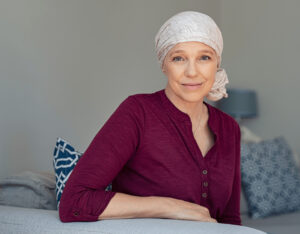Hot flashes are the bane of many women in their menopausal years. But while we most often associate hot flashes with older women, the reality is that these uncomfortable sensations can also be due to stress, thyroid problems, certain types of tumors or side effects from certain medications.
FOLLOW US ON FACEBOOK & INSTAGRAM
Treatment is typically focused on hormone therapy, which isn’t a viable option for a number of folks. Meanwhile, lifestyle changes can sometimes, but not always help with hot flashes.
Enter cannabis, which—according to recent research—appears to help ease the severity of hot flashes.
What Are Hot Flashes?
Hot flashes are intense feelings of warmth that aren’t caused by an external source. Hot flashes can come about suddenly, or the sensation can build up over the course of a few minutes.
Some common hot flash symptoms are:
- Sweating or redness of the skin, especially above the waist
- A faster than usual heartbeat
- Tingling in the fingers
Hot flashes that occur at night are also called night sweats. These night sweats are one of reasons why women who are going through menopause also suffer from insomnia.
What Causes Hot Flashes in Menopause?
For menopausal women, hot flashes are thought to arise due to hormonal changes with estrogen playing an important role.
During menopause, estrogen levels fall. This can cause the hypothalamus, the part of the brain that regulates body temperature, to go haywire and read a rise in body temperature when there isn’t one.
In response, the brain may release other hormones to help reduce body heat. These hormones can cause an increase in heart rate and the dilation of blood vessels, which in turn increases blood flow, causing the body to sweat and cool off.
Hot flashes often have triggers. Some common ones are:
- Spicy foods, alcohol and caffeine
- Being in a warm room
- Smoking
- Stress and anxiety
Hot flashes themselves aren’t life-threatening, though they can be severe enough that they lower your quality of life.
There’s no cure for hot flashes. For menopausal women, the most common way to treat them is via hormone replacement therapy (HRT), which supplies the body with estrogen. And for women who can’t undergo HRT, other treatment options include antidepressant and antiseizure medications.
While these drugs work for some, for others, they don’t work well enough or can have unwanted side effects like bloating, headaches and mood swings. And HRT can increase the risk of stroke, blood clots and breast cancer.
So, if you decide to go the natural route to help address your hot flashes, avoiding or managing them is dependent on lifestyle changes such as:
- Limiting alcohol, hot beverages, caffeine and spicy foods
- Lowering room temperature
- Reducing stress
Another lifestyle adjustment that folks who experience hot flashes may want to consider is adding cannabis to their daily regimen.
RELATED: MICRODOSING CANNABIS FOR A MORE BLISSFUL MENOPAUSE
Cannabis May Be Able to Reduce Night Sweats & Body Temperature
A case study from the Journal of Palliative Medicine suggests that the tetrahydrocannabinol (THC) that’s found in cannabis could reduce the severity of night sweats experienced by cancer patients.
Researchers retroactively looked at case studies of five cancer patients who all reported that night sweats interfered with their quality of life. After agreeing to take dronabinol, a synthetic form of THC, all reported a positive outcome.
Two of the subjects said that dronabinol completely resolved their night sweats, while the other three said that their symptoms were less severe. It seems that once these subjects were able to manage their night sweats, other symptoms like fatigue and anxiety also began to improve.
All reported that they saw these improvements within just one week of starting dronabinol treatment.
While this case report was small and has many shortcomings, it aligns closely with the anecdotal reports of many women who say that cannabis helps them manage their menopause-induced insomnia. It also fits in well with animal studies that point to THC’s ability to reduce body temperature.
Studies in the future will have to look at a larger sample size. And double-blind, randomized, placebo-controlled trials addressing night sweats in both cancer patients and menopausal women will also be necessary.
Photo credit: pixelheadphoto digitalskillet/Shutterstock.com
If you’re new to cannabis and want to learn more, take a look at our Cannabis 101 index of articles. And if you have questions about cannabis, ask them and our community will answer.






